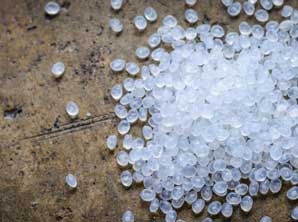Green tie-ups: Dow/New Energy Blue to develop biobased ethylene from corn; Jindan New Biomaterials to use Sulzer’s PLA tech in China
US chemical giant Dow and bio-conversion company New Energy Blue have announced a long-term supply agreement in North America where New Energy Blue will create biobased ethylene from renewable agricultural residues, ie corn stover (stalks and leaves). Dow expects to purchase this biobased ethylene and using it in recyclable applications across transportation, footwear, and packaging.

Dow's agreement with New Energy Blue is the first agreement in North America to generate plastic source materials from. This is also Dow's first agreement in North America to utilise agriculture residues for plastic production.
Under the terms of the agreement, Dow is supporting the design of New Energy Freedom, a new facility in Mason City, Iowa, that is expected to process 275 kilotonnes/year of corn stover and produce commercial quantities of second-generation ethanol and clean lignin. Nearly half of the ethanol will be turned into bio-based ethylene feedstock for Dow products. This agreement also gives Dow similar commercial supply options for the next four future New Energy Blue projects, supporting New Energy Blue's ability to scale its production and support farmers by providing a reliable market for agricultural residues.
The five projects are expected to displace over 1 million tonnes/year of greenhouse gas (GHG) emissions. Dow's share of these five projects will also lead to a reduction in its sourcing of fossil fuels and subsequent GHG emissions.
This agreement would play a pivotal role in Dow's approach to building material ecosystems that value, source, and transform waste into circular products. By collaborating with the best partners and technologies for collection, reuse, and recycling of waste – in this case, using a renewable resource – Dow enables global material ecosystems to scale.
Through this agreement, Dow would increase its use of renewable yet still recyclable resources, transforming them into products that consumers use every day. Since corn stover releases carbon dioxide into the atmosphere as it decomposes, Dow's agreement with New Energy Blue would also help reduce carbon emissions from agriculture by reusing this otherwise wasted carbon, it adds.
Dow's use of bio-based feedstocks from New Energy Blue is expected to be certified by ISCC Plus.
Dow's supply agreement with New Energy Blue would create additional economic value for farmers by opening a dependable new market. New Energy Blue's forthcoming Iowa processing facility would source corn stover directly from local farmers every year. Because US farmers' grain yield per acre is among the world's highest, their stover density is correspondingly high. By selling their excess stover for biomass refining, they could reap an excellent second income from the same crop while using farming practices that increase carbon retention in the soil, says the firm.

Meanwhile in other news, Swiss chemical firm Sulzer Chemtech has recently signed an agreement with Chinese lactic acid (LA) producer, Jindan New Biomaterials (Jindan), to enable the production of polylactic acid (PLA). Jindan will utilise Sulzer’s licensed PLA technology at its new manufacturing plant in Henan Province to produce up to 75,000 tonnes/year of PLA, mainly to be used for food packaging, moulded goods and fibre production. Sulzer will also provide extensive service support to ensure a seamless start.
Jindan’s new bioplastic facility will produce PLA in a variety of grades to support the expanded use of bioplastics in several sectors in China, including the textile and package manufacturing industries. To enable the company’s transition towards more sustainable, circular practices, Sulzer Chemtech will design and supply its key proprietary PLA technology, while further providing extensive engineering and technical support and field services as the manufacturer commences operations.
Sulzer’s Executive Chairwoman Suzanne Thoma said: “Our leading technologies are currently used at the vast majority of existing PLA facilities worldwide and support the increased adoption of circular manufacturing practices and sustainable materials. We are pleased to collaborate with Jindan New Biomaterials to meet ever-increasing market demand for bioplastics.”
Shi Congliang, President of Jindan New Biomaterial, added: “By investing in Sulzer’s PLA solutions, we are taking key, strategic steps to advance our competitiveness in the booming biopolymer industry and drive the use of greener plastics. Thanks to its comprehensive expertise in the PLA value chain and all the stages involved, Sulzer Chemtech is an extremely valuable partner. We look forward to installing the equipment and starting-up our enhanced operations.”
(PRA)
Subscribe to Get the Latest Updates from PRA Please click here
©2023 Plastics and Rubber Asia. All rights reserved.

©2023 Plastics and Rubber Asia. All rights reserved.
Home Terms & Conditions Privacy Policy Webmail Site Map About Us















